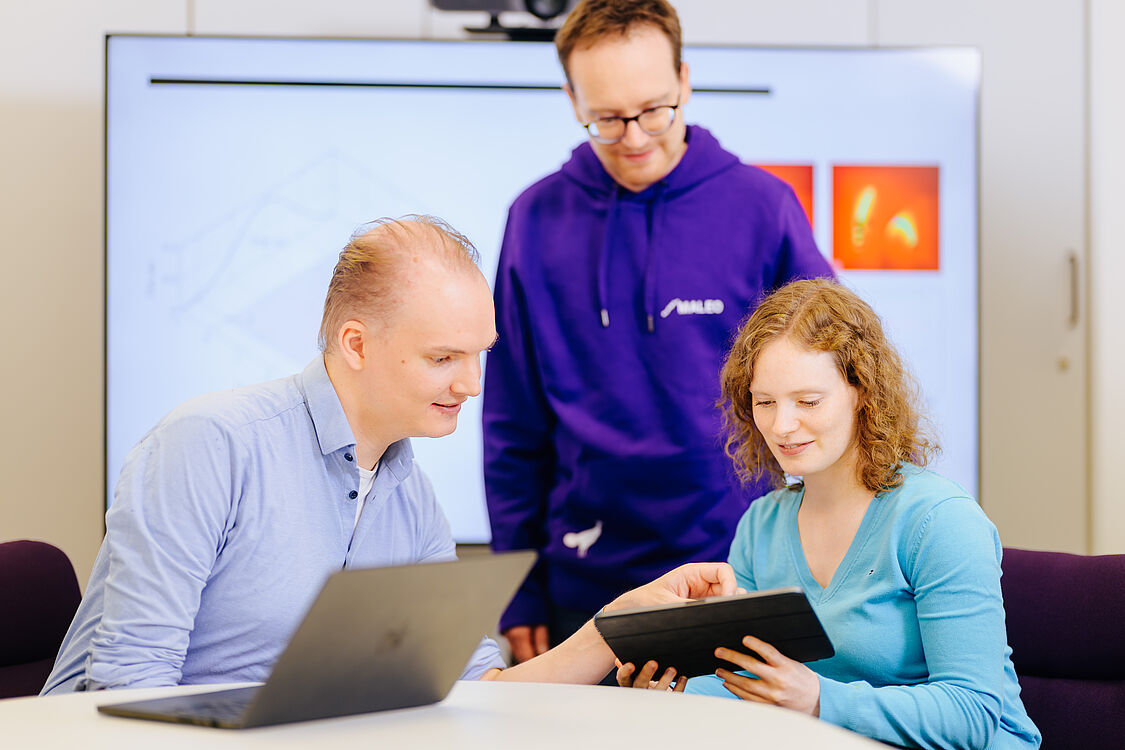CS Research at Paderborn University
Explore our research expertise in Data Science, Security, Domain-Specific Computing, and Quantum Computing at Paderborn University. Our inter-disciplinary approach is driving discoveries that are bridging the gap between academic insight and industry needs – pushing for innovation and impact worldwide.
Our Core Research Areas
Domain-specific computing

Domain-Specific Computing facilitates the specialization of hardware, software, and runtime environments to optimize the efficiency of computer systems for particular applications. Our research in this field encompasses the development of novel methodologies for modeling and the automated design of domain-specific systems, with their application spanning embedded systems, network components, and high-performance computing platforms. A key technological focus of our work is the use of Field-Programmable Gate Arrays (FPGAs). Due to their widespread commercial availability, FPGAs provide a practical means for prototyping flexible, reconfigurable, and application-specific computing systems.
Selected projects
Quantum Computing

Our quantum research is primarily centered on the theoretical foundations of quantum computing, encompassing areas such as quantum algorithms, quantum complexity theory, quantum cryptography, quantum error correction, and quantum information theory.
The key areas of our research focus include among others: quantum generalizations of Boolean satisfiability, post-quantum cryptography based on lattice problems, the characterization of many-body entanglement, and the theoretical modeling of photonic quantum systems.
Selected projects
Data Science

The research area of Data Science merges our expertise in machine learning, optimization, and knowledge representation in order to (i) establish the foundations of novel intelligent solutions and
(ii) develop practical implementations for real-world problems. In addition to addressing foundational challenges, the research team focuses on holistic solutions that span the entire lifecycle of intelligent systems: from their development to their archival. Both foundational and applied challenges are tackled through a range of research initiatives, including collaborative research centers (e.g., TRR 318), graduate schools (e.g., DataNinja), international training networks (e.g., LEMUR), and AI research groups (e.g., Multicriteria Machine Learning).
Selected projects
Security

Our security research focuses on the secure design and development of software-intensive systems, including engineering of cryptographic protocols. We adopt a holistic approach to security, integrating human factors and methods to support all stakeholders in the creation and use of secure software — such as developers, cryptographers, practitioners, and end users. Our methodologies are frequently evaluated through their close integration with the Internet of Things (IoT) and Industry 4.0 sectors, ensuring their relevance and effectiveness in real-world applications.
Selected projects
Software Engineering

In the ever-evolving industrial landscape, the majority of value creation is driven by software, which increasingly permeates all aspects of our daily lives. As a result, it is imperative that software be designed with sustainability, usability, maintainability, and security at its core. Our research explores innovative approaches to empowering software engineers and related professionals in achieving these critical qualities for the software-intensive systems of the future. By advancing methodologies and tools, we aim to support the development of software that not only meets current demands but is also resilient and adaptable in the face of evolving technological challenges.
